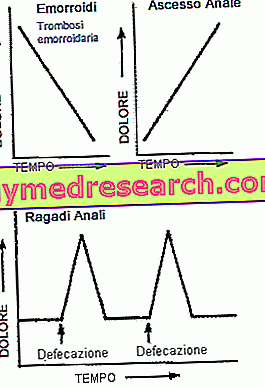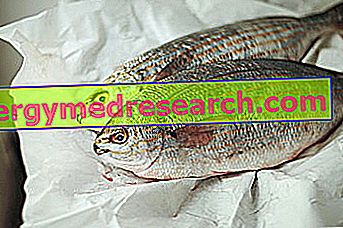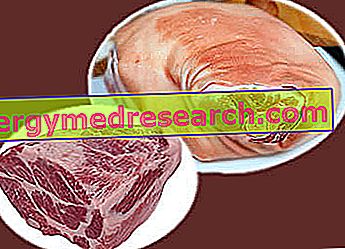Causes and Symptoms
The perception of pain during and / or after defecation is a symptom that is common to several morbid conditions, generally benign, which affect the anorectal area.
If persistent or particularly intense, the pain associated with stool evacuation is worthy of a proctological examination.

- constipation: the emission of faeces of particularly hard consistency can damage the anal mucosa, causing pain during and after defecation;
- diarrhea: the frequent emission of liquid stools can irritate the anal mucosa causing pain; in the presence of intestinal infections or food intolerances (such as lactose), the acid pH of the faeces contributes to producing anal lesions causing pain during the passage of the feces;
- anal fissures: these small cuts of the anal mucosa are typically associated with burning and constricting pains (as if a small piece of glass crossed the anus) DURING defecation; features also the small hemorrhages highlighted by the typical streaks of bright red blood in toilet paper. The pain usually arises after the evacuation and lasts for a period varying from a few seconds to several hours in the case of gravity;
- hemorrhoids: these dilatations of the homonymous submucosal veins, located at the level of the anus and the terminal part of the rectum, are associated with hemorrhages that are more important than those caused by fissures, leaving real stains on toilet paper or drops of blood in the toilet. Pain during defecation is generally absent (in the case of non-prolapsed internal hemorrhoids), however less violent than that associated with fissures; in the case of severity (for example in the case of prolapsed and choked internal hemorrhoids) the pain can be rather violent and also manifest during the day
- intake of large amounts of irritating foods or spices, such as black pepper or chilli pepper
- scratching lesions: scratching, whether idiopathic or due to local infections, particular dermatological conditions (psoriasis, eczema, lichen simplex ...) or contact dermatitis, causes perianal cutaneous damage that favors the proliferation of infectious processes and causes pain burning during defecation, with erythema (redness) of the perianal skin. Children are easily infected with various types of worms, such as pinworms ( Enterobius vermicularis ) that cause severe itching
- injuries resulting from anal sex intercourse: there is generally a basic pain that can eventually be accentuated with defecation
- injuries caused by sexually transmitted diseases, such as gonorrhea, herpes and chlamydia: there is generally a worsening basic pain over time that can eventually be accentuated with defecation; anal leakage of mucus, blood or pus may be noted
- fistula and anal abscess: the formation of a pathological canaliculus that connects the anal canal with the skin surrounding the anus (fistulas) and the subsequent infection of this gap (abscess) causes an acute, continuous and increasing anal pain associated with swelling and purulent leakage
- rectal cancer: it can cause symptoms such as the emission of ribbon-like stools and a burning sensation in the anal canal accompanied by spasm of the sphincter with urgency of defecation and a sense of incomplete emptying during defecation; in this case the anal pain is dull and persists during the day.
What to do
- Contact your doctor to determine the cause of the pain and remedy it. In addition, general advice can be useful, such as:
- wear cotton underwear, avoiding the non-breathable synthetic one
- perform an accurate hygiene of the anal area with appropriate detergents after each defecation, avoiding excessive or manic hygiene that could cause irritative eczema
- regularize body weight
- use soft, non-colored and unscented toilet paper: coloring substances and fragrances can aggravate the anal itching or favor their development
- wash the anal area thoroughly after sporting activity: even sweat can accentuate or trigger an annoying itching and anal pain, which is accentuated with defecation
- always dry the genital and anal area thoroughly with a hair dryer or a soft cotton cloth
- Regularize the diet in case of constipation or food-borne diarrhea
- wash the anal area with fresh but not freezing water: the cold has a mild analgesic effect but can cause the choking of haemorrhoidal nodules and accentuate the spasm of the anal sphincter



